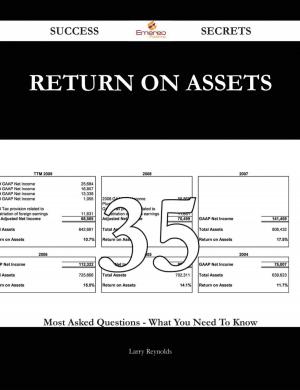Natural And Artificial Duck Culture - The Original Classic Edition
Nonfiction, Reference & Language, Reference, Fiction & Literature| Author: | Rankin James | ISBN: | 9781486419463 |
| Publisher: | Emereo Publishing | Publication: | October 24, 2012 |
| Imprint: | Emereo Publishing | Language: | English |
| Author: | Rankin James |
| ISBN: | 9781486419463 |
| Publisher: | Emereo Publishing |
| Publication: | October 24, 2012 |
| Imprint: | Emereo Publishing |
| Language: | English |
This is a new and freshly published edition of this culturally important work by James Rankin, which is now, at last, again available to you.
Enjoy this classic work today. These selected paragraphs distill the contents and give you a quick look inside Natural And Artificial Duck Culture:
This sudden popularity of the duck in our markets, the great demand for them on the tables of our epicures, together with the immense profits realized from growing them, has naturally created quite an interest among poultry men; so much so that I am constantly flooded with letters filled with inquiries as to which is the best variety to raise, which are the best layers, if they can be hatched in incubators, what kind of buildings are necessary, the amount of profit realized,-in short, wishing me to give them the whole thing in detail, which, were one willing, it would be completely out of ones power to do.
...In a few weeks he wrote that he wished to return them, as they did not answer his purpose; for, said he, I have an artificial lake on my lawn, near my piazza, and I wanted these ducks to disport in the water for the pleasure of my wife and children, and they will not go in the water at all unless I drive them in with a whip, and I have to stand guard over them all the time, as they get out the moment my back is turned.
...Third, that it is not necessary to keep your birds till they are six months old in the fall and then put them on the market when it is sure to be glutted, but much better to market them at ten weeks, when they are nearly as heavy, and you are sure to get more than double the price, as well as save three or four months extra feed.
...When we look back forty years-when year after year chronicled failure and our best efforts met with loss-when we were the butt, ridicule, and laughing stock of the whole community; when we were assured again and again that we were fighting against nature and never could succeed, and repeated failures only seemed to confirm that assertion,-and compare it with the present, when we can grow our birds by the thousands, regulate the growth, control the mortality, and grow flesh or feathers at will; have shortened the precocity, increased fecundity, and even educated the birds to an aversion for water, which was formerly their home; we have completely reversed the order of things and taught our birds to reproduce at a season of the year when all nature is against them, we can safely feel the victory is won.
...The time will come when it will gradually supersede many of the regular farm crops on the sterile soil of New England, when every farmer will have his proper complement of poultry appliances, and when you can prove to the average farmer that the capital necessary to run a poultry plant (which will with less labor ensure him a greater income than[Pg 26] that from his whole farm) is less than one-fourth of that required for any other farm investment.
This is a new and freshly published edition of this culturally important work by James Rankin, which is now, at last, again available to you.
Enjoy this classic work today. These selected paragraphs distill the contents and give you a quick look inside Natural And Artificial Duck Culture:
This sudden popularity of the duck in our markets, the great demand for them on the tables of our epicures, together with the immense profits realized from growing them, has naturally created quite an interest among poultry men; so much so that I am constantly flooded with letters filled with inquiries as to which is the best variety to raise, which are the best layers, if they can be hatched in incubators, what kind of buildings are necessary, the amount of profit realized,-in short, wishing me to give them the whole thing in detail, which, were one willing, it would be completely out of ones power to do.
...In a few weeks he wrote that he wished to return them, as they did not answer his purpose; for, said he, I have an artificial lake on my lawn, near my piazza, and I wanted these ducks to disport in the water for the pleasure of my wife and children, and they will not go in the water at all unless I drive them in with a whip, and I have to stand guard over them all the time, as they get out the moment my back is turned.
...Third, that it is not necessary to keep your birds till they are six months old in the fall and then put them on the market when it is sure to be glutted, but much better to market them at ten weeks, when they are nearly as heavy, and you are sure to get more than double the price, as well as save three or four months extra feed.
...When we look back forty years-when year after year chronicled failure and our best efforts met with loss-when we were the butt, ridicule, and laughing stock of the whole community; when we were assured again and again that we were fighting against nature and never could succeed, and repeated failures only seemed to confirm that assertion,-and compare it with the present, when we can grow our birds by the thousands, regulate the growth, control the mortality, and grow flesh or feathers at will; have shortened the precocity, increased fecundity, and even educated the birds to an aversion for water, which was formerly their home; we have completely reversed the order of things and taught our birds to reproduce at a season of the year when all nature is against them, we can safely feel the victory is won.
...The time will come when it will gradually supersede many of the regular farm crops on the sterile soil of New England, when every farmer will have his proper complement of poultry appliances, and when you can prove to the average farmer that the capital necessary to run a poultry plant (which will with less labor ensure him a greater income than[Pg 26] that from his whole farm) is less than one-fourth of that required for any other farm investment.















